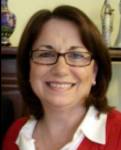No Metro North Service Today
- Details
- Hits: 4118
 Thousands of Westchester and Connecticut commuters will not be going to work today as service on the Hudson, Harlem and New Haven lines of Metro-North Railroad remains suspended. The trains cannot operate on any of the three lines due to significant damage to many portions of the Metro-North system. The signal system is not fully functioning on any of the three lines and trees have fallen on the tracks on all three lines as well.
Thousands of Westchester and Connecticut commuters will not be going to work today as service on the Hudson, Harlem and New Haven lines of Metro-North Railroad remains suspended. The trains cannot operate on any of the three lines due to significant damage to many portions of the Metro-North system. The signal system is not fully functioning on any of the three lines and trees have fallen on the tracks on all three lines as well.
Local streams and the Bronx River continue to overflow their banks and crews are working to clean up three mudslides. See the dramatic photo of a mudslide at Sputen Duyvill on the Hudson Line where a retaining wall gave out. In addition to flooding in Scarsdale and Hartsdale, Metro-North reports significant water on the tracks in Tuckahoe. Check out the photo of the Tuckahoe station at 3 pm on Sunday where tracks were flooded with up to four feet of water from the overflowing Bronx River.
Metro-North’s goal is to restore as much service as possible as soon as it is safe to do so, however they have not said when they expect the system to

(Pictured at top: Hartsdale Station on Sunday morning)

Chamber of Commerce to Host Newcomers Picnic
- Details
- Hits: 4928
 Former Scarsdale Mayor Carolyn Stevens has signed on as Executive Director of the Scarsdale Chamber of Commerce. She is leading this growing group with Chamber President Lewis Arlt of Houlihan Lawrence. The two have been very successful at recruiting new members from the Scarsdale business community and a complete list of members is on the Chamber website.
Former Scarsdale Mayor Carolyn Stevens has signed on as Executive Director of the Scarsdale Chamber of Commerce. She is leading this growing group with Chamber President Lewis Arlt of Houlihan Lawrence. The two have been very successful at recruiting new members from the Scarsdale business community and a complete list of members is on the Chamber website.
The Chamber will be renewing an old Scarsdale tradition of hosting a “Newcomers Picnic” at the Scarsdale Women’s Club on Drake Road on Sunday September 25th from 1-4 pm. Businesses, civic organizations, volunteer groups, neighborhood associations and an array of non-profits will be asked to attend and take tables to introduce themselves to new residents. People who have purchased homes within the last two years or rented within the past year will be invited to the event. If you would like to attend, save the date.
In other news, the Chamber Rx card, a new free prescription assistance drug card program is available. Not only can the Scarsdale Chamber Rx card offer uninsured and underinsured residents up to 75% off their prescription drugs (including those for pets), it can also give discounts of up to 50% on prescription eyeglasses, teeth whitening, diabetic supplies, Lasik surgery, and hearing aids. The card can also be used by people who have health insurance coverage with no prescription benefits, a common occurrence in many health savings accounts (HSA) and high-deductible health plans. The discount does not apply to your co-pays but can be used for non-covered drugs.
card offer uninsured and underinsured residents up to 75% off their prescription drugs (including those for pets), it can also give discounts of up to 50% on prescription eyeglasses, teeth whitening, diabetic supplies, Lasik surgery, and hearing aids. The card can also be used by people who have health insurance coverage with no prescription benefits, a common occurrence in many health savings accounts (HSA) and high-deductible health plans. The discount does not apply to your co-pays but can be used for non-covered drugs.
There are no membership restrictions and there's no application or paperwork. It is offered through United Networks of America (UNA), one of the largest providers of value-added managed care products and services in the United States with more than 240,000 participating providers serving more than 72.4 million members with 56,000 national and regional pharmacies in place.
Anyone interested in obtaining a card or searching drug pricing and participating pharmacies can visit the Scarsdale Chamber of Commerce website, or stop by Houlihan Lawrence at 32 Popham Road and ask the receptionist for your own free card.
Support Scarsdale commerce by supporting members of the Chamber of Commerce. To visit the Chamber website and see the complete membership list, click here:
Heathcote Resident Alerts FEMA to Local Flooding Issue
- Details
- Hits: 6087
 Robert Reiffel of Cayuga Road and a group of his neighbors addressed the Scarsdale Board of Trustees at their August 9th meeting about flooding on Seneca, Oneida, Cayuga, Canterbury and Kelwynne Roads and urged the Village to prioritize this area for flood mitigation work. On behalf of the Murray Hill Middle Heathcote Neighborhood Association Reiffel sent the following letter, a week BEFORE Hurricane Irene, to the Federal Emergency Management Agency (FEMA).
Robert Reiffel of Cayuga Road and a group of his neighbors addressed the Scarsdale Board of Trustees at their August 9th meeting about flooding on Seneca, Oneida, Cayuga, Canterbury and Kelwynne Roads and urged the Village to prioritize this area for flood mitigation work. On behalf of the Murray Hill Middle Heathcote Neighborhood Association Reiffel sent the following letter, a week BEFORE Hurricane Irene, to the Federal Emergency Management Agency (FEMA).
Ms. Lynn Gilmore Canton
FEMA Regional Administrator, Region II
Federal Emergency Management Agency
New Jersey and New York
Suite 1311
26 Federal Plaza
New York, NY 10278-0002
I would like to point out a serious situation to you, one that has already cost your agency millions of dollars and has the potential to cost millions more – all because of inaction.
The Sheldrake River runs through the town of Scarsdale, New York, and has flooded several times in the past decades because the headwaters of that river, in the region of Seneca, Oneida, Cayuga, Canterbury, Catherine Kelwynne, and other roads in Scarsdale, were developed in the 1960’s without adequate foresight in terms of floodwater drainage. Existing ponds were filled and streambeds were enclosed in small culverts under driveways and roadbeds. With increasing development, the infrastructure inadequacies have become stressed beyond their capacity, causing major flooding on several occasions, resulting in your having to pay out significant sums in flood damages. The last major flood was on April 15, 2007, and the current structural situation is substantially the same as it was then, or even worse, because of additional development and construction of impervious surfaces.
The Village of Scarsdale has been remiss in terms of not only allowing this excessive development beyond the capacity of the infrastructure to support it, but also has been negligent in not correcting the situation by performing necessary infrastructure improvements, despite numerous warnings, and despite having already commissioned a survey, which pointed out the significance of the danger in the above geographical area. However, the Village has chosen to ignore our area in favor of other areas where damage to personal property and injuries to individuals was less severe during the most recent flood. They have made a list of projects to perform and placed us at number 15 out of 16, despite the fact that our first project is estimated to cost only $260,000.00, whereas some of the others are projected to run in the millions of dollars.
Moreover, while blaming the existing problems on mistakes made 50 years ago, the management of the Village is ignoring legislation that was recently enacted, requiring that they supervise testing of groundwater measurements for current construction to prevent additional problems.
I am requesting that you investigate this inaction on the part of the Village of Scarsdale in order both to secure the safety of the residents of this area as well  as to mitigate the possibility that you will be required to expend additional sums of money to reimburse flooded homeowners, which you would not have to do if the needed repairs were undertaken in a timely manner. I must reiterate that local homeowners have expended considerable personal funds to maintain the streambed of the Sheldrake River, but the major obstructions, under Village roadways, still exist and pose a real and imminent danger to the residents, as evidenced by the fact that two residents were injured during the flood of 2007 in an area that was inaccessible to ambulances because of the flooding.
as to mitigate the possibility that you will be required to expend additional sums of money to reimburse flooded homeowners, which you would not have to do if the needed repairs were undertaken in a timely manner. I must reiterate that local homeowners have expended considerable personal funds to maintain the streambed of the Sheldrake River, but the major obstructions, under Village roadways, still exist and pose a real and imminent danger to the residents, as evidenced by the fact that two residents were injured during the flood of 2007 in an area that was inaccessible to ambulances because of the flooding.
Either funds will be spent to correct the structural problems that have been allowed to exist far too long or you will be forced to pay out additional flood related benefits to reimburse homeowners whose property, and personal, damages could have been prevented.
Yours Sincerely,
Robert S. Reiffel, M.D.
Chairman, Water Management Committee
Murray Hill Middle Heathcote Neighborhood Association
Cc: Mary Colvin, National Flood Insurance Program Contact
Scott Duell, Risk Analysis, Flood Hazard Mapping and Mitigation Planning Contact
New Sweet Spots Coming to Scarsdale Village
- Details
- Hits: 5011
 Three new sweet spots will soon be opening in Scarsdale Village. Imagine Candy is in the works on Harwood Court, next to Yogo Joy and will offer every conceivable kind of candy to downtown shoppers - from penny candy to artisanal chocolates. Bill Vogel and his partner are now sourcing the best products out there -- and will sell unique products from all over the United States. Vogel says he searched Westchester for the right spot for the new store and landed in Scarsdale where the shop is currently under construction. In addition to candy dispensers and the chocolate display, the new store will feature a candy art wall, created with artwork from local residents. Imagine will have a party space so keep them in mind for your child’s next birthday bash. The current timetable plans for an opening in early October, well before the Halloween candy rush.
Three new sweet spots will soon be opening in Scarsdale Village. Imagine Candy is in the works on Harwood Court, next to Yogo Joy and will offer every conceivable kind of candy to downtown shoppers - from penny candy to artisanal chocolates. Bill Vogel and his partner are now sourcing the best products out there -- and will sell unique products from all over the United States. Vogel says he searched Westchester for the right spot for the new store and landed in Scarsdale where the shop is currently under construction. In addition to candy dispensers and the chocolate display, the new store will feature a candy art wall, created with artwork from local residents. Imagine will have a party space so keep them in mind for your child’s next birthday bash. The current timetable plans for an opening in early October, well before the Halloween candy rush.
We also spoke to Diana of Martine’s Bakery, soon to open at 48 East Parkway. She reports that they plan to open at the beginning of September and will be selling their own breakfast pastries, fresh-baked artisanal breads and serving soups, salads and sandwiches at tables in the shop. In nice weather you will be able to sit outside and enjoy coffee, cappuccino and espresso.
Also opening in just a few weeks will be Patisserie Salzburg at Christie Place. The shop has been under construction for many months and the work is almost complete. Similar to Patisserie Salzburg in Rye, the Viennese pastry shop will offer sumptuous croissants, pain au chocolat, strudel, baguettes, breads, pastries, tarts and cakes -- all freshly baked. There will be a good selection of coffees, sandwiches and salads sold at lunchtime. For breakfast, lunch or a snack, there will be ample seating inside and out –weather permitting.
Trustees Explore Roundabout at Heathcote Five Corners
- Details
- Hits: 6029
 On Monday August 8, the Scarsdale Village Municipal Services Committee met to review and discuss the results of the second phase of a study conducted by Creighton Manning Engineers on the feasibility of a roundabout at the Heathcote Five Corners.
On Monday August 8, the Scarsdale Village Municipal Services Committee met to review and discuss the results of the second phase of a study conducted by Creighton Manning Engineers on the feasibility of a roundabout at the Heathcote Five Corners.
During the first phase of this study, Creighton Manning engineers reviewed 5-legged roundabouts in New York State in order to show how intersections similar to the one at the Heathcote Five Corners benefit from a single-lane roundabout as opposed to traffic lights at each leg.
Phase two of this study, which was the focus of Monday’s meeting, culminated in a presentation given by Jeff Pangburn and Stephan Godlewski, consultants from the Creighton Manning firm. Their presentation included a detailed mapping of the existing intersection at the Heathcote Five Corners, a preliminary layout of what the roundabout might look like, statistics that suggest how a roundabout would improve the intersection, and an initial cost estimate of the project at large.
Pangburn began the presentation by explaining why a roundabout would be a more favorable type of intersection in the first place. He cited an improvement in pedestrian safety, a reduction in the severity of potential accidents, an increase in traffic flow, a decrease in vehicular speeds, and a decline in carbon emissions as potential benefits.
The presentation was particularly useful in providing a visual image of the roundabout. The key features of the roundabout would include a landscaped center island, truck aprons, raised pedestrian islands, roadway lighting, and additional signage. The virtual image created by the Creighton Manning firm certainly suggests that such a project would improve the existing intersection at least from an aesthetic standpoint.
In addition to providing a visual image, the consultants presented some hard facts collected from past studies. The results of these studies indicate a 35% reduction in automobile accidents and a 45% reduction in pedestrian accidents as a result of the implementation of a roundabout at intersections similar to the one that exists at the Heathcote Five Corners. In a study of a roundabout in Glens Falls, NY, which has the same characteristics as the Five Corners in terms of the type of intersection, traffic delay was cut by 20%, and traffic volumes decreased dramatically. The improvement was so remarkable that before the intersection was transformed, only 31% of Glens Falls residents were in favor of the roundabout, whereas after the transformation, 63% were in favor.
Unfortunately, the potential benefits of a roundabout at the Heathcote Five Corners come at a high price. The projected cost of creating this new intersection is estimated at $1.9 million before right of way acquisitions are even considered.
Beyond the monetary costs of the project, many residents at Monday’s meeting voiced their concerns about the physical price they and others would have to pay if the roundabout is in fact constructed. The roundabout is a successful form of intersection if drivers yield when they are signaled to yield. However, many residents alluded to the fact that Scarsdale drivers are not known to be the most considerate group of individuals on the road. To this extent, aggressive driving could result in an increase in number of accidents at this intersection, which would entirely defeat the purpose of creating a roundabout in the first place.
Of course, like any big decision, the Municipal Services Committee will have to weigh the pros and cons of creating a roundabout in order to determine whether or not it will be worth constructing. Monday’s meeting was the first of many future discussions regarding what could be one of the most monumental municipal changes the village of Scarsdale has seen in decades. Shelby Rokito recently graduated Scarsdale High School, and will be attending Cornell University in the fall as a Communication major in the College of Agriculture and Life Sciences. She loves writing, cooking, and playing with her dog.
Shelby Rokito recently graduated Scarsdale High School, and will be attending Cornell University in the fall as a Communication major in the College of Agriculture and Life Sciences. She loves writing, cooking, and playing with her dog.







